The keto diet, also known as the ketogenic diet, is a low-carb, high-fat diet that has gained popularity over the years due to its potential health benefits, including weight loss, improved blood sugar control, and increased energy levels.
Here I hope to answer some of the most frequently asked questions about being on the keto diet. I was surprised when I googled keto and found that there were so many questions listed. I thought, since this diet had been around for quite some time, most people would know about it by now. What I discovered is that most people have heard about keto, but do not really know much about it. Hence this blog post.
So let's dive in, shall we:
- What are the basic rules of the keto diet?
The basic rules of the keto diet are simple: eat high-fat, moderate-protein, and very low-carb foods. Specifically, you should aim to get about 70-80% of your daily calories from fat, 20-25% from protein, and only 5-10% from carbohydrates. This means you should avoid starchy and sugary foods, such as bread, pasta, rice, potatoes, and sweets, and instead focus on foods like meat, fish, eggs, dairy, nuts, seeds, oils, and non-starchy vegetables. While this is easy to say, it is not easy to do and many people struggle with these rules. There is a way to start keto that helps to eliminate the struggle and that is doing something called "dirty keto". It will get you on your way with keto without being quite so stringent and making you feel deprived.
.jpg)
Dirty keto is a type of ketogenic diet that focuses on eating high-fat, low-carb foods without paying much attention to the quality of the food. In other words, it's a "dirty" or less strict version of the traditional ketogenic diet.
While the traditional ketogenic diet emphasizes healthy fats, such as avocados, nuts, and olive oil, and encourages eating plenty of vegetables and whole foods, dirty keto is all about getting your body into ketosis (a state where your body burns fat for fuel instead of carbs) while eating some of what you want, as long as it's low in carbs.
This means that dirty keto followers might eat fast food, processed foods, and snacks like bacon and cheese, as long as they fit within their daily carb limit. However, it's worth noting that while dirty keto may help you lose weight quickly, it's not necessarily a healthy or sustainable way to eat in the long term, and may not provide all the necessary nutrients your body needs to function optimally.
As I said, it isn't a good diet to stay on long term, but it will help you get started without the feeling of loss that you may get on keto. You will eventually need to go onto a stricter keto diet, but this gets you started and gives you time to learn the ins and outs of the regular keto diet, all while losing weight.
- What happens the first 30 days of keto?
.jpg)
The first 30 days of the keto diet can be challenging, as your body adjusts to the new way of eating. During this time, you may experience symptoms like fatigue, headaches, irritability, and brain fog, known as the "keto flu." These symptoms are a normal part of the process, and usually subside within a few days to a week. As your body enters into a state of ketosis, you may also experience weight loss, reduced appetite, and increased energy levels. I would like to point out here that not everyone on keto will experience "keto flu", so you may not either. It is just good to know what it is, should you get to feeling bad in the first few days.
- What is the hardest day of keto?
The hardest day of the keto diet is often the first day, as you adjust to the new way of eating and begin to experience symptoms of the keto flu. However, with time, your body will adapt to the new diet and the symptoms will subside. Since you will be eating in a different way, there is a natural discomfort that you experience much like when you start anything else new in your life. You just need to keep moving forward, even if you mess up in the first few days. Staying keto is the goal initially, not losing weight at first.
- What should I do the first week of keto?
During the first week of keto, it is important to focus on getting enough fat and protein to help you transition into ketosis. You should also drink plenty of water and electrolytes to help prevent dehydration and minimize symptoms of the keto flu. Meal planning and preparation can also be helpful to ensure that you have keto-friendly foods on hand at all times.
I can not stress enough the importance of drinking enough water to prevent dehydration. I personally think the flu symptoms are caused by dehydration mostly. Also, meal planning will become your best friend. I usually choose a day a week to get all my meals sorted out. That seems to work best. A lot of others will do meal planning on the day they get groceries. It's just what works for your situation and your life.
- Does keto reduce belly fat?
Research has shown that the keto diet can be effective for reducing belly fat, especially in individuals who are overweight or obese. This is because the diet helps to reduce insulin levels and increase the body's ability to burn fat for energy.
Burning fat instead of carbohydrates expends much more energy in your body and that alone can cause slight weight loss. But the fact that your body is actively looking for fat to burn, helps you lose fat in those areas we all have that nothing before has ever helped us lose.
- What can you not do on keto?
This is a no brainer question. On the keto diet, you should avoid foods that are high in carbohydrates, including starchy and sugary foods like bread, pasta, rice, potatoes, and sweets. You should also avoid processed foods, as they often contain added sugars and other hidden carbs. Alcohol should be consumed in moderation or avoided altogether, as it can interfere with the body's ability to enter into ketosis.
Since your goal is to get your body into ketosis and stay there, any time you fall off the wagon, you will stop the process. That means you have to start all over again, and I know I don't enjoy that much. I think you will agree that staying as close to the diet will make your goal reachable and the time spent more enjoyable.
- What food is not allowed in keto?
Foods that are not allowed on the keto diet include:
- Grains and cereals, such as wheat, oats, and rice
- Starchy vegetables, such as potatoes and corn
- Sugary foods and drinks, such as candy, soda, and fruit juice
- Legumes, such as beans, lentils, and chickpeas
- High-carb fruits, such as bananas, grapes, and mangoes
- What are the top 10 keto foods?
I think the real question is what can I eat since the above is off limits:
- Meat, such as beef, chicken, pork, and lamb
- Fish and seafood, such as salmon, tuna, shrimp, and crab
- Eggs
- Low-carb vegetables, such as spinach, kale, broccoli, and cauliflower
- Nuts and seeds, such as almonds, walnuts, chia seeds
- Avocado
- Cheese
- Coconut oil and other healthy oils, such as olive oil and avocado oil
- Plain Greek yogurt
- Berries, such as raspberries and blackberries (in moderation)
What you need to be eating is more protein. Protein prevents your body from cannibalizing your muscles, tendons, and bones to provide energy. Also, when you eat proteins, you tend to stay full longer and have less appetite or urge to binge.
- What happens on day 3 of keto?
On day 3 of the keto diet, you may start to experience symptoms of the keto flu, such as fatigue, headaches, and brain fog. This is because your body is transitioning from using glucose for energy to using ketones, which can take a few days to fully adapt to. But, once again, you may not have any issue with this. It is very individual.
- What week do you lose the most weight on keto?
The amount of weight you can lose on the keto diet varies depending on your starting weight, age, sex, and other factors. Generally, you can expect to lose the most weight during the first week or two of the diet, as your body adjusts to the new way of eating and enters into ketosis. However, weight loss may continue at a slower rate over time. I found that I lost weight pretty fast at first, but then plateaued and lost 1-3 pounds per week. I never really stopped losing weight, it just slowed down.
- What happens in the first month of keto?
During the first month of the keto diet, your body is adapting to the new way of eating and entering into ketosis. You may experience symptoms of the keto flu, such as fatigue, headaches, and irritability, but these typically subside within a few days to a week. As your body starts to burn fat for energy, you will also experience weight loss, increased energy levels, and improved mental clarity.
- Do you do cheat days on keto?
Many people choose to have occasional cheat days on the keto diet, where they consume higher amounts of carbohydrates or indulge in non-keto foods. However, this can interfere with the body's ability to stay in ketosis and can slow down weight loss progress. It is generally recommended to avoid cheat days or limit them to special occasions.
When you are first starting out on your weight loss program, it is probably best to adhere strictly to the diet (although starting "dirty" can help you get started). Cheat days usually turn into cheat weeks, then cheat months. It really depends on how dedicated you are to your goal of losing weight and feeling better.
If you are highly motivated due to excessive weight, chronic illness, low-self esteem, and depression then you will probably stay on the diet once you start to see that you are getting results--whether weight loss or just feeling better.
- How many days should I stay in keto?
Now, this is a great question and it is one that shows the lack of understanding about going onto keto. Keto is a way of life for most people. Once you get used to the rules of the diet and learn how to prepare for it, most will stay on this diet indefinitely
to prevent regaining the weight lost.
There is no one-size-fits-all answer to how many days you should stay in ketosis, as it depends on your individual goals and health status. Some people choose to follow the keto diet for a few weeks or months to jumpstart weight loss, while others may choose to follow it long-term for health reasons. It is important to work with a healthcare professional to determine the best approach for your individual needs.
- How much weight can you lose in the first month of ketosis?
The amount of weight you can lose in the first month of ketosis varies depending on your starting weight, age, sex, and other factors. Some people may lose a significant amount of weight during the first month, while others may lose only a few pounds. On average, you can expect to lose 1-2 pounds per week on the keto diet.
But don't expect to lose weight at the same rate forever.
- How long after starting keto do you see results?
The timing of results on the keto diet varies from person to person, but most people start to see some changes within the first few weeks of starting the diet. This may include weight loss, increased energy levels, and improved mental clarity. It may take several months to achieve the full benefits of the diet, however, and it is important to approach the diet with a long-term perspective.
I hope this post has answered most of your questions and helps you begin and/or stay on your keto diet. Overall, I have been on and off this diet for years and I can tell you that being on this diet makes you feel so much better, you will want to stay on it.
You can find a million keto recipes on Pinterest and there are so many blogs available that talk about being on this diet. There is no reason you cannot start and stay on the keto diet if you desire to do so. I encourage you to give it a try if losing weight has always been an issue for you. What do you have to lose, except weight?
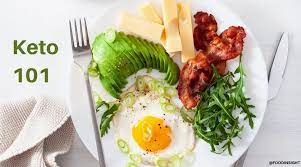
.jpg)
.jpg)


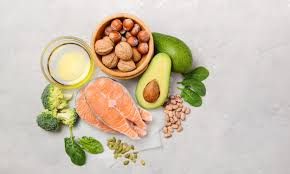

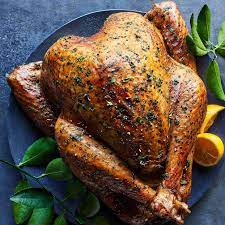
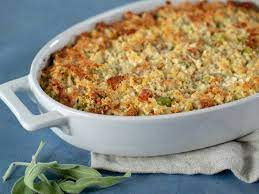



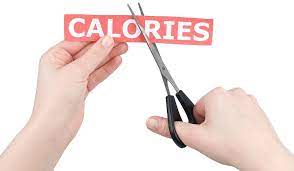










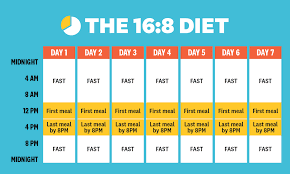



.jpg)



















.jpg)
.jpg)
.jpg)




